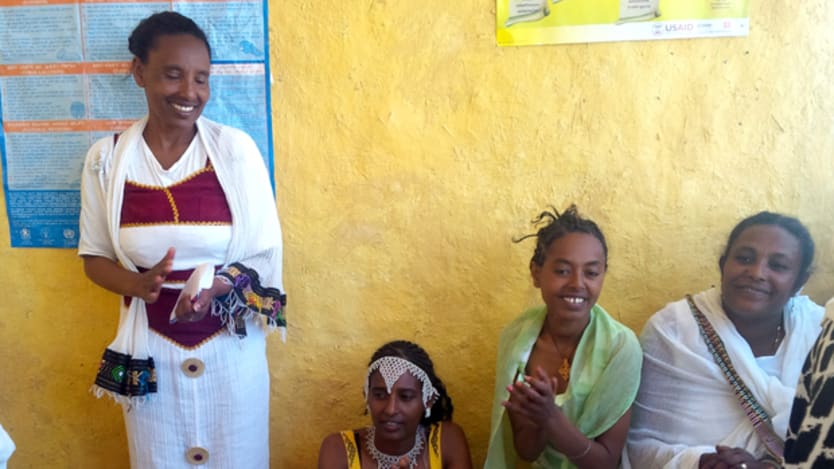Universal access to reproductive health care: A global obligation and opportunity

Eleanor Roosevelt once said universal human rights begin in the small places close to home — and there’s no area closer to home than a person’s sexual and reproductive health.
Right now, 222 million girls and women around the world have an unmet need for modern contraception. As long as any girl or woman is denied quality reproductive health services and information, our work securing human rights remains incomplete.
Providing universal access to reproductive health care — including voluntary family planning — is one of the great human rights issues of the 21st century. It is also one of the smartest investments we can make to create a more equitable and prosperous world.
Universal access to contraception would mean fewer newborn and maternal deaths; it would mean more girls could stay in school longer, increasing their lifetime earnings and their opportunities; and it would mean that more girls and women would be empowered, promoting stronger communities. In addition, data show that investing in family planning saves money on other development costs.
The positive benefits of access to modern contraception are undeniable — so the right to them should be undeniable, too.
The international community has embraced the goal of universal access to reproductive health through the Millennium Development Goals, but we have not lived up to our commitment. While we’ve made some progress, we’re not on track to reach MDG 5, which calls for universal access to contraception by the end of 2015.
World Contraception Day on Sept. 26 is a call to action to step up our efforts in expanding access to voluntary family planning. We must break down barriers both on the demand side and the supply side. We must make sure quality services are available and that girls and women have the freedom to use them. We must make sure they receive the information and education they need. And we must move sexual and reproductive health and rights higher on the global agenda, increasing political will and financial resources.
See more from this series:
The 2012 London Summit on Family Planning was an important moment to mobilize action. Governments, civil society groups, multilateral organizations — including the United Nations — and the private sector committed to expand access to contraceptives to an additional 120 million youth and women by 2020. Family Planning 2020, the global partnership that came out of the summit, is doing important work to help translate these commitments into real change. Let’s build on this momentum.
As the international community develops the next set of global goals to follow the MDGs, we have a ripe opportunity to address the unfinished business of sexual and reproductive health and rights. All of us need to raise our voices to ensure that the next agenda recognizes the rights of women and youth and catalyzes progress for them.
Ensuring universal access to sexual and reproductive health and rights is a global opportunity, and most importantly, a global obligation. Achieving this goal will empower girls and women, improve global health, and create stronger societies — and it will advance human rights around the world.
This article is part of a series by the Bill & Melinda Gates Foundation that culminates on World Contraception Day. Check out more stories about global health and other important issues at the Impatient Optimists blog.
Join the Devex community and access more in-depth analysis, breaking news and business advice — and a host of other services — on international development, humanitarian aid and global health.
Search for articles
Most Read
- 1
- 2
- 3
- 4
- 5








